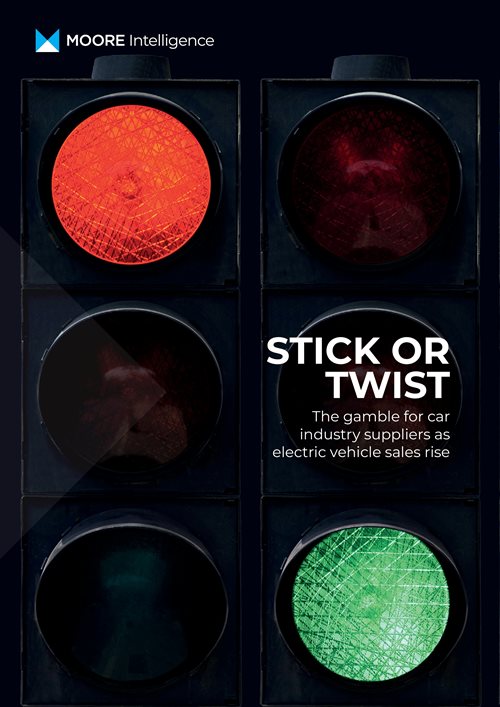The car industry has generated wealth for generations of family-owned component manufacturers and well-paid jobs for millions. Now this delicately balanced ecosystem is facing an existential challenge with the rise of electric vehicles.
Companies which have become world leaders in the development and production of specialist components for traditional petrol and diesel cars have a dilemma: to continue with the successful formula that has served them well for decades or divert significant financial resources to the entirely different technologies required to power electric vehicles (EVs).
Three million electric cars were registered in 2020, according to the International Energy Agency and that pushed the total number of EVs on the roads past 10 million, with the main concentration in Europe. However, with around 90 million vehicles being produced globally each year that means the majority of markets are still buying traditional fossil-fuelled cars.
“The shift we see in Europe is driven by EU regulations that oblige the big car brands to change their product portfolio but unless there is the same regulatory change in other countries, they simply will not do that,” says Thomas Ziegler, leader of Moore Global’s automotive group. “I think the US will be the next to adopt EVs in big numbers but India, China and large parts of the world will stick with combustion technology for quite a while.”

Key contributors:
Thomas Ziegler, Leader, Moore Global Automotive Group, Moore INTARIA
Martin Kiňo, Partner, Moore BDR
Candice Whitefield, Director, Moore Johannesburg
Krzysztof Oczko, Partner, Moore Rewit Poludnie
Moore Intelligence provides fresh insight from global leaders tackling the key challenges of modern business. To see more, visit
Moore Intelligence